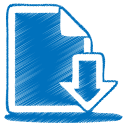- Publications
- Conference paper
-
 Increasing the value of Remote Laboratory federations through an open sharing platform: LabsLand
Increasing the value of Remote Laboratory federations through an open sharing platform: LabsLand
Increasing the value of Remote Laboratory federations through an open sharing platform: LabsLand
Authors

[u' @inproceedings{orduna_increasing_2017, address = {New York, NY, USA}, title = {Increasing the value of {Remote} {Laboratory} federations through an open sharing platform: {LabsLand}}, abstract = {A remote laboratory is a software and hardware tool that enables students to access real equipment located somewhere else through the Internet. This equipment is usually located in universities, schools or research centers. During the last couple of decades, different initiatives have emerged dealing with the development and management of remote laboratories, their integration in learning management systems or their sharing. This last point is particularly relevant, since remote labs are a clear example of excess capacity: since they are usually used only some hours a day, some weeks a year, they could be shared among institutions to reduce costs or to increase the offer of experiential learning. However, despite this fact, the overall impact of these laboratories is fairly limited beyond the scope of the host institution or the scope (and duration) of projects in which the host institution is involved. The focus of this contribution is to outline a set of potential reasons for this fact, and solutions that are being developed to tackle them. After over 10 years working on the area, the WebLab-Deusto research group has started a spin-off focused on this topic, called LabsLand. A key factor of this spin-off is to provide a platform similar to other sharing economy marketplaces, aiming to provide features commonly ignored in the remote laboratories literature such as trust, accurate reliability or different pricing schemes for different scenarios; as well as the laboratories that are being initially provided.}, author = {Ordu\xf1a, Pablo and Rodriguez-Gil, Luis and Garcia-Zubia, Javier and Angulo, Ignacio and Hernandez-Jayo, Unai and Azcuenaga, Esteban}, month = mar, year = {2017}, keywords = {ISI, Remote Laboratories, WebLab-Deusto} }']
Abstract
